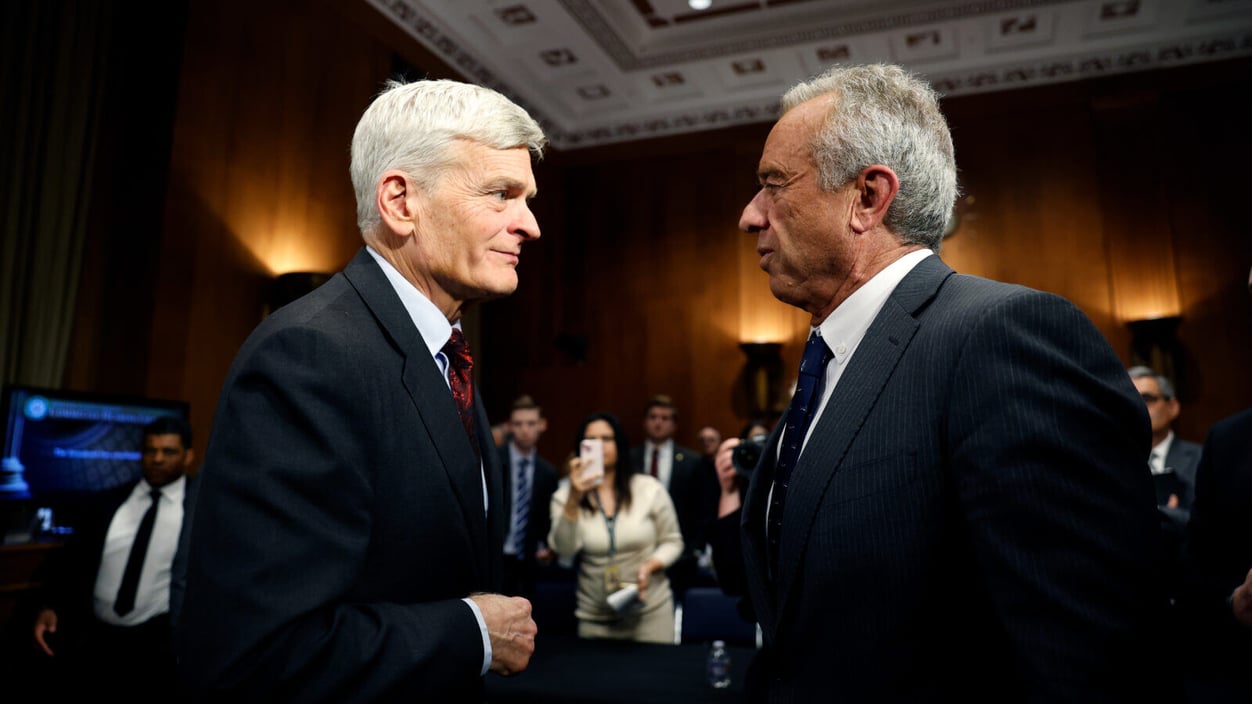MAHA
RFK Jr. is one step closer to leading HHS

Kevin Dietsch/Getty Images
Robert F. Kennedy Jr. is set to be confirmed as HHS secretary after his nomination cleared the Senate Finance Committee yesterday. The committee voted for Kennedy 14-13 along party lines, sending his nomination to the Senate floor for a vote, probably next week.
It had not been clear how Republican Sen. Bill Cassidy (above, left), a physician who expressed misgivings about Kennedy last week, would vote. Ultimately, Cassidy said that the nominee won him over with certain promises, and promised himself to watch Kennedy closely when it came to vaccines. But some health experts are skeptical that Cassidy will be able to prevent Kennedy from taking actions that would weaken vaccine recommendations or sow doubt about their value.
Read more from STAT's Lizzy Lawrence about the promises that Kennedy made to Cassidy to win his vote.
politics
One of these nominees is not like the others
Michael Kratsios isn't like President Trump's other nominees. Meaning — he's not controversial. His appointment as science adviser and director of the Office of Science and Technology Policy has earned positive reviews from several scientific and academic groups as well as former OSTP directors — including Eric Lander, a famously brash scientist not known for sparing criticism.
But he's also not like those who came before him in the critical role. In a departure from long-standing tradition, Kratsios is not a researcher, but a technologist with experience in venture capital. Despite his unorthodox background, former colleagues told STAT he's well suited for the role.
Read more from STAT's Jonathan Wosen on Kratsios and his focus on AI and U.S. tech leadership over China.
research
NIH study sections are back on
Yesterday morning, the NIH hosted the first study section to review grant applications in more than two weeks, after an abrupt and indefinite pause by the Trump administration, STAT's Megan Molteni and Anil Oza report. These meetings — in which experts consider if the agency should support proposed research — are a core part of how the agency fulfills its mission to improve human health and reduce illness and disease.
While these meetings have resumed, the external communications pause appears to still be in effect, as the Trump administration gets more of its political appointees in place at various health and science agencies. Read more from Megan and Anil.
The communications pause was just one of the administrative actions that led to chaos in scientific research communities last week. Another was the call to end programs promoting diversity, equity, and inclusion. In a First Opinion essay published yesterday, former U.S. surgeon general Jerome Adams takes a nuanced stance on the order, arguing that "our country deserves a far better discourse on DEI." Read the piece.


No comments